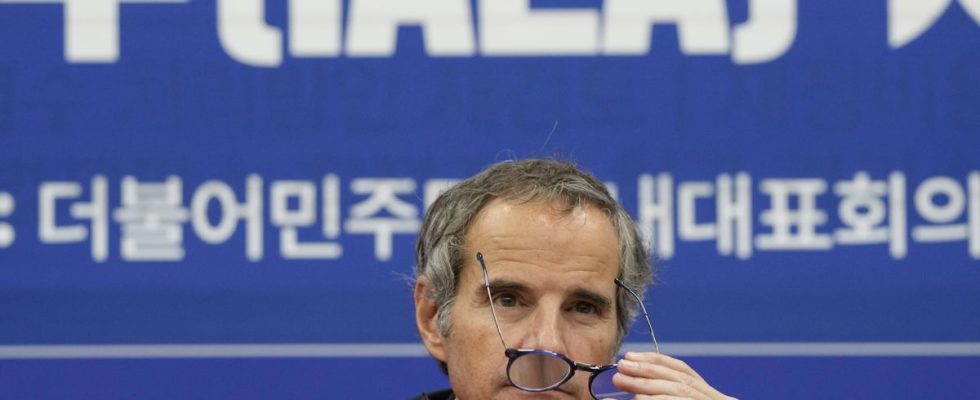Several subjects worry the International Atomic Energy Agency (IAEA). She deplored on Monday the lack of cooperation from Iran, from the reinstallation of surveillance cameras deemed too slow to the question of unexplained traces of uranium. On the other hand, the UN body noted a slowdown in the rate of production of uranium enriched to 60%, a threshold close to the 90% necessary to manufacture an atomic bomb.
For more than two years now, the IAEA has been struggling to control Iran’s nuclear program, which continues to grow in power although Tehran denies wanting to acquire the atomic bomb. Its general manager Rafael Grossi “regrets” thus “that no progress has been made” on the subject of cameras, despite his repeated requests.
The Islamic Republic had promised in March to restart these surveillance devices, disconnected in June 2022 in a context of deteriorating relations with Western powers. The IAEA has also been deprived since February 2021 of “essential” access to the data recorded by the cameras. This situation “has detrimental consequences for the Agency’s ability to guarantee the peaceful nature of the Iranian nuclear program”, judged Rafael Grossi.
Unexplained nuclear uranium particles
The manager is also worried about “the lack of progress” in the thorny issue of the presence of nuclear uranium particles on two undeclared sites, Turquzabad and Varamin. And calls on Iran to cooperate “seriously and over time”.
The IAEA reports enriched uranium stocks of 3,795.5 kg as of August 19, a decline of 949 kg compared to May, attributed to technical reasons by a diplomat speaking on condition of anonymity. However, this total remains more than 18 times higher than the authorized limit.
Iran continues to enrich at high levels, far from the ceiling set at 3.67%: it thus has 535.8 kg (compared to 470.9 kg previously) and 121.6 kg at 60% (compared to 114. 1kg). In the case of 60%, the increase is three times less than what had been observed previously, said the same diplomatic source, without being able to say whether this slowdown was the result of a “political decision”.

